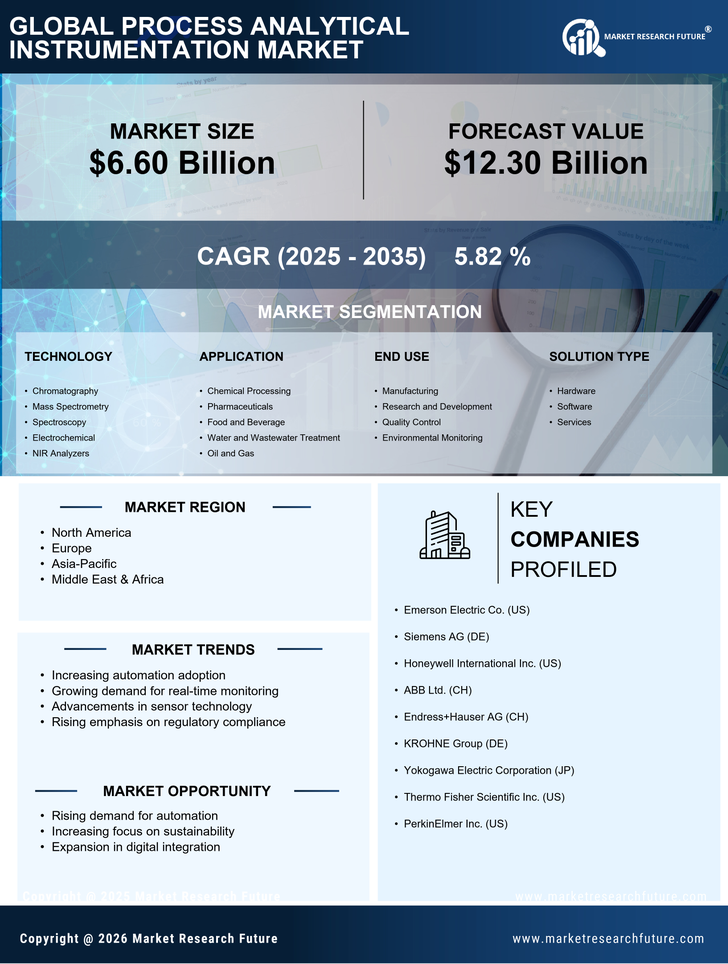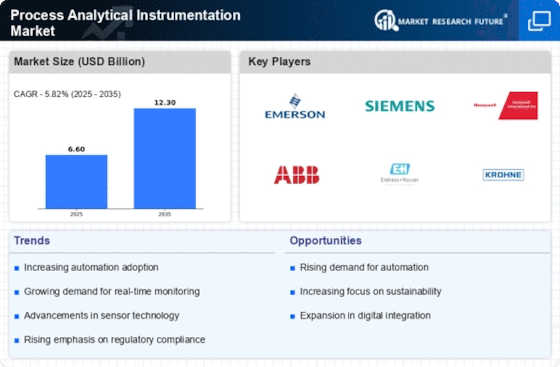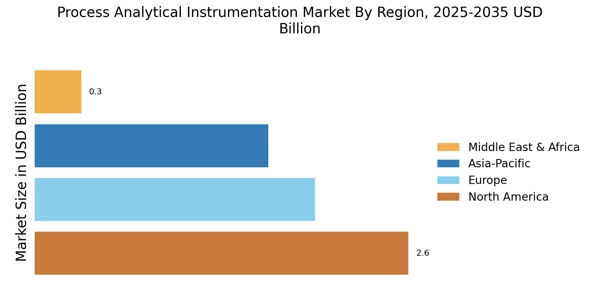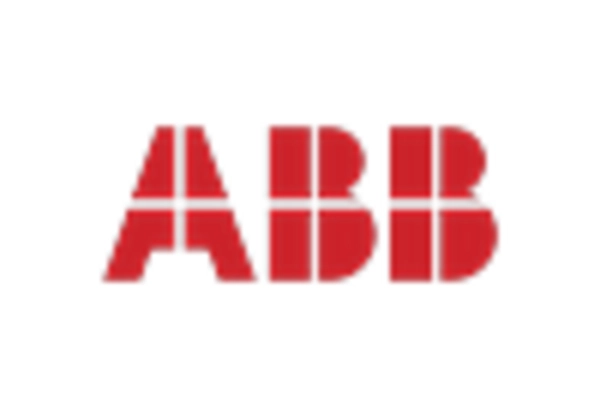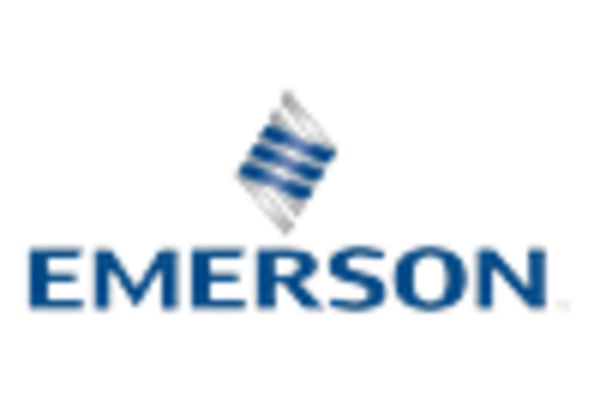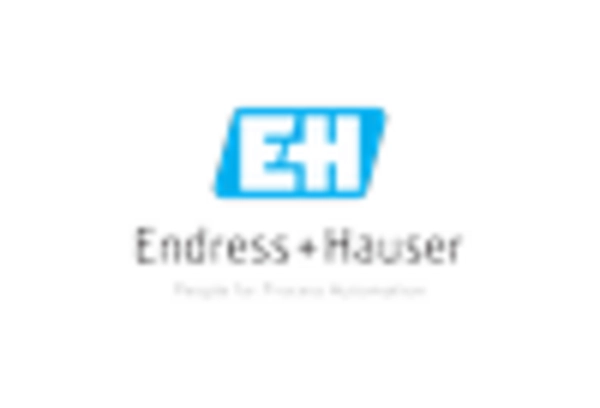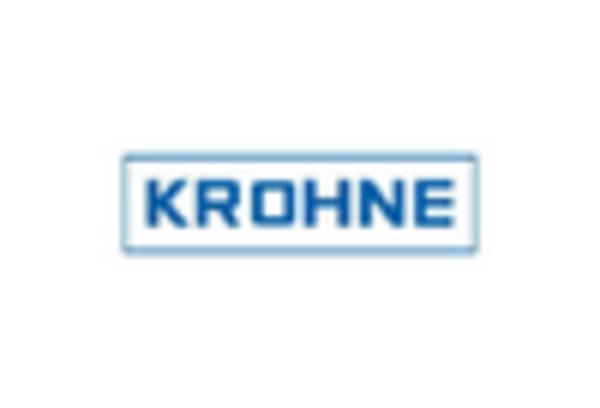Integration of Industry 4.0
The Process Analytical Instrumentation Market is significantly influenced by the integration of Industry 4.0 technologies. The advent of smart manufacturing, characterized by the Internet of Things (IoT), big data analytics, and artificial intelligence, is reshaping how industries operate. Companies are increasingly leveraging these technologies to optimize their processes, enhance data collection, and improve decision-making. The market for process analytical instrumentation is expected to benefit from this trend, as more organizations seek to implement advanced analytics and automation. This integration not only improves operational efficiency but also fosters innovation in product development, potentially leading to a market growth rate of around 7% in the coming years.
Increased Focus on Quality Control
Quality control remains a pivotal driver in the Process Analytical Instrumentation Market. As industries face heightened scrutiny regarding product quality and safety, the demand for advanced analytical instruments is on the rise. Regulatory bodies are enforcing stricter guidelines, compelling manufacturers to adopt robust quality control measures. This trend is particularly evident in the pharmaceutical sector, where the market for process analytical instrumentation is projected to reach USD 5 billion by 2026. Enhanced quality control processes not only ensure compliance but also improve customer satisfaction, thereby driving further investments in analytical technologies.
Growing Adoption in Emerging Economies
Emerging economies are increasingly becoming key players in the Process Analytical Instrumentation Market. As these regions industrialize, there is a growing need for advanced analytical solutions to meet the demands of various sectors, including chemicals, food processing, and pharmaceuticals. The expansion of manufacturing capabilities in countries such as India and Brazil is likely to drive the demand for process analytical instrumentation. Market analysts suggest that the growth rate in these regions could exceed 10% over the next few years, as local industries seek to enhance efficiency and comply with international standards.
Rising Demand for Real-Time Monitoring
The Process Analytical Instrumentation Market is experiencing a notable increase in demand for real-time monitoring solutions. Industries such as pharmaceuticals, food and beverage, and chemicals are increasingly adopting these technologies to enhance process efficiency and product quality. The ability to monitor processes in real-time allows for immediate adjustments, reducing waste and improving yield. According to recent data, the market for real-time monitoring solutions is projected to grow at a compound annual growth rate of approximately 8% over the next five years. This trend indicates a shift towards more automated and precise manufacturing processes, which is likely to drive further investments in process analytical instrumentation.
Environmental Regulations and Sustainability Initiatives
The Process Analytical Instrumentation Market is also being shaped by stringent environmental regulations and sustainability initiatives. Governments worldwide are implementing policies aimed at reducing emissions and promoting sustainable practices. This regulatory landscape is compelling industries to adopt process analytical instrumentation that can monitor and minimize environmental impact. The market for these instruments is expected to grow as companies seek to comply with regulations while also enhancing their sustainability profiles. Analysts predict that the focus on environmental compliance could lead to a market growth rate of approximately 6% in the next few years, as industries invest in greener technologies.
